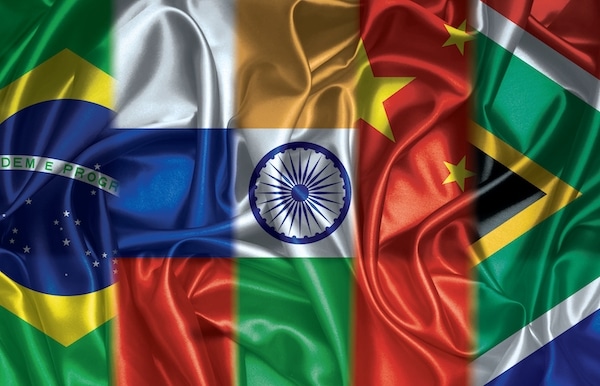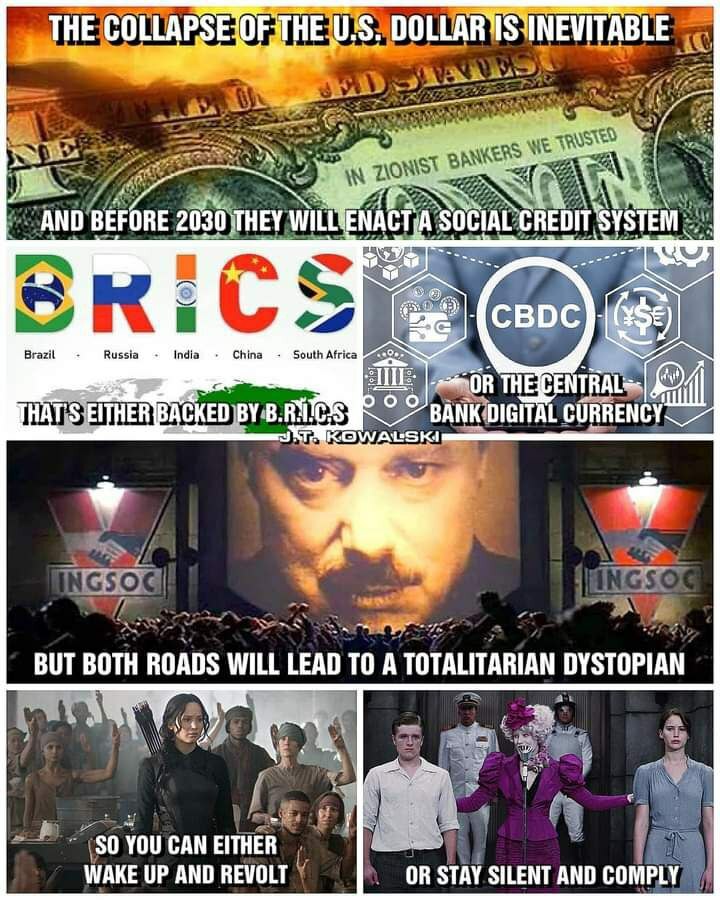“International discord over Ukraine does not bode well for the settlement of differences over the IMF’s future. Though the G7 is excluding Russia from its number, in retaliation for its action in Crimea, this does not amount to isolating Russia. There has been no suggestion that Russia be excluded from the G20.
The USA and its allies have suspected that several other G20 members would not stand for it. This suspicion was confirmed yesterday when the BRICS foreign ministers, assembled at the international conference in The Hague, issued a statement condemning ‘the escalation of hostile language, sanctions and counter-sanctions’. They affirmed that the custodianship of the G20 belongs to all member-states equally and no one member-state can unilaterally determine its nature and character. In short, their statement read like a manifesto for a pluralist world in which no one nation, bloc or set of values would predominate…
It now seems unlikely that the USA will complete (or, indeed, begin) legislative action on the IMF reform by the 10 April deadline the BRICS have set. The odds are moving in favour of a showdown at the G20 finance ministers’ and central bank governors’ meeting due in Washington on that date…
Beijing leaders have long dreamt of displacing, or at least dethroning, the US dollar from its reserve currency role. US dominance of the IMF is one of several effective bars to the achievement of such a goal. The kind of action Russia is advocating, the BRICS wresting control of the IMF in despite of US veto power, might have some appeal.
That would mark the end of the unified global monetary system that has developed since the IMF was founded in 1945, to be replaced by a bloc of fiat currencies in the developed countries and a system in the emerging sector where currencies were linked to drawing rights in some new international fund, possibly with some material backing. (gold, silver, and possibly commodities – Jesse)
It seems unlikely that convertibility between these monetary systems could be maintained for long. Consequently, the 10 April meeting is shaping up as a potentially critical juncture in world economic history.”
Paul Mylchreest, A Critical Juncture
Paul Mylchreest published this essay over at ZeroHedge this evening, and it is worth a read, as Paul is connecting some fairly important dots for us. I doubt that many traders will really understand the implications of what he is saying, without even having read the comments. Good traders often take a highly focused, very detailed, but narrow and short term view of things, and this is both their strength and their weakness. It deserves a broader stage, but it is unlikely to get it when the major media remains willfully blind.
I had not thought of a dual system previously, in which the Anglo-Americans and their allied states decide to go in one direction, maintaining their hegemony around the dollar and the euro, and the rest of the world going in another. It would be inherently unstable, and throw the global credit and forex markets into a somewhat chaotic state. But then again, who could have predicted the folly of a loosely associated set of nations adopting a single currency without the rigor of monetary transfers and fiscal union with which to balance the system.
This is not likely to be a singular event, but part of an evolutionary change in the makeup of the international monetary system that has been developing for years. At some point things will begin moving more quickly, and change may come in an avalanche of events that will leave most analysts gaping in disbelief.
When do you think the American Revolution began, on 4 July 1776? Such great turns in human events happen over long periods of time. But, in retrospect, there are always critical junctures in the process of change, with hard positions taken, and opportunities for peaceful evolution lost.
“All successful revolutions are the kicking in of a rotten door.”
John Kenneth Galbraith
And since the grand failure of the Soviet state, nothing has grown more corrupt and self-serving than the ring of corporations and crony capitalists that have become the post Bretton Woods banking cartel. It has begun to consume itself, and to kill its own. The economic hitmen have finally come home.
But predicting ‘when’ is difficult in matters such as this. What starts the avalanche, what sound triggers the slide, which snowflake proves to be too much? When is enough wealth and power— enough?
Certainly the events in the Ukraine are difficult to understand without a broader geo-political and economic context, except in the most facile and jingoist of caricatures of different perspectives. They are barbarians, and hate us for our freedom, the wonders of our financial engineering, and the beauty of our culture. We are the liberators. We bring loans and economic progress. We come in peace. Look on our works, ye mighty, and despair.
“Although U.S. Navy and Marine forces generally operate on a regular cycle of deployments to European waters, they rely on a network of permanent bases in the region, especially in the Mediterranean. These should be retained, and consideration given to establishing a more robust presence in the Black Sea. As NATO expands and the pattern of U.S. military operations in Europe continues to shift to the south and east, U.S. naval presence in the Black Sea is sure to increase.” Project For the New American Century, 2000
We are not the makers of history. We are not gods. We are not even the sovereigns of our own passions and delusions and fears.
We who forget history are its victims.














